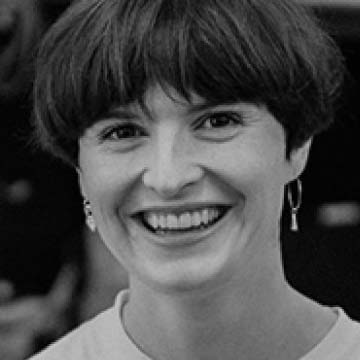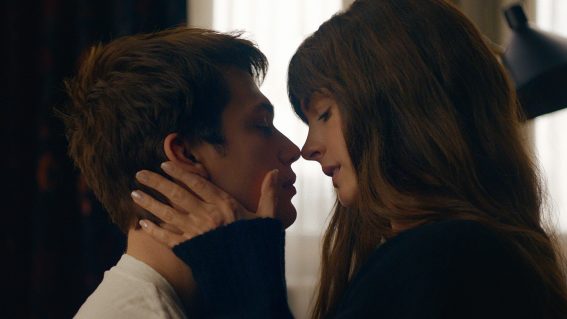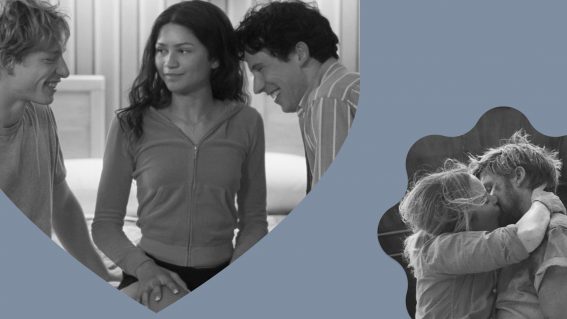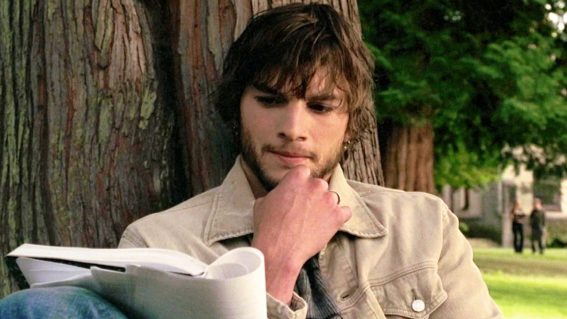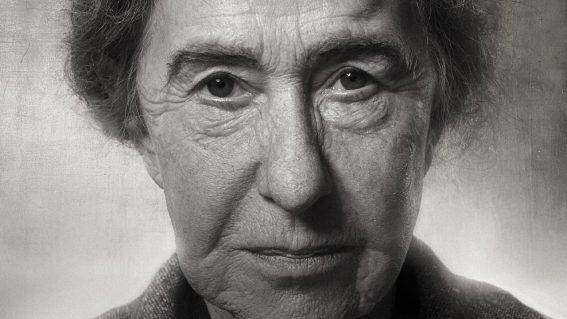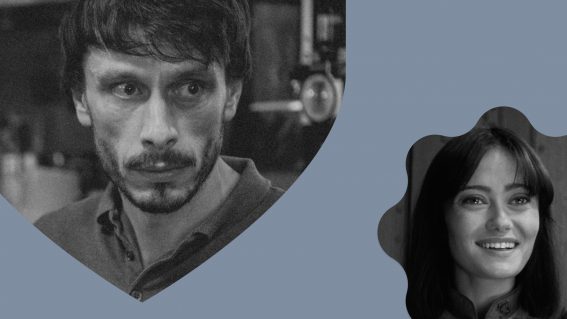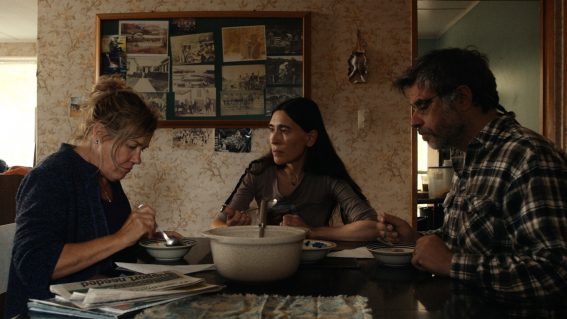Gemma Arterton channels Lucille Ball in thoroughly British underdog story Funny Woman
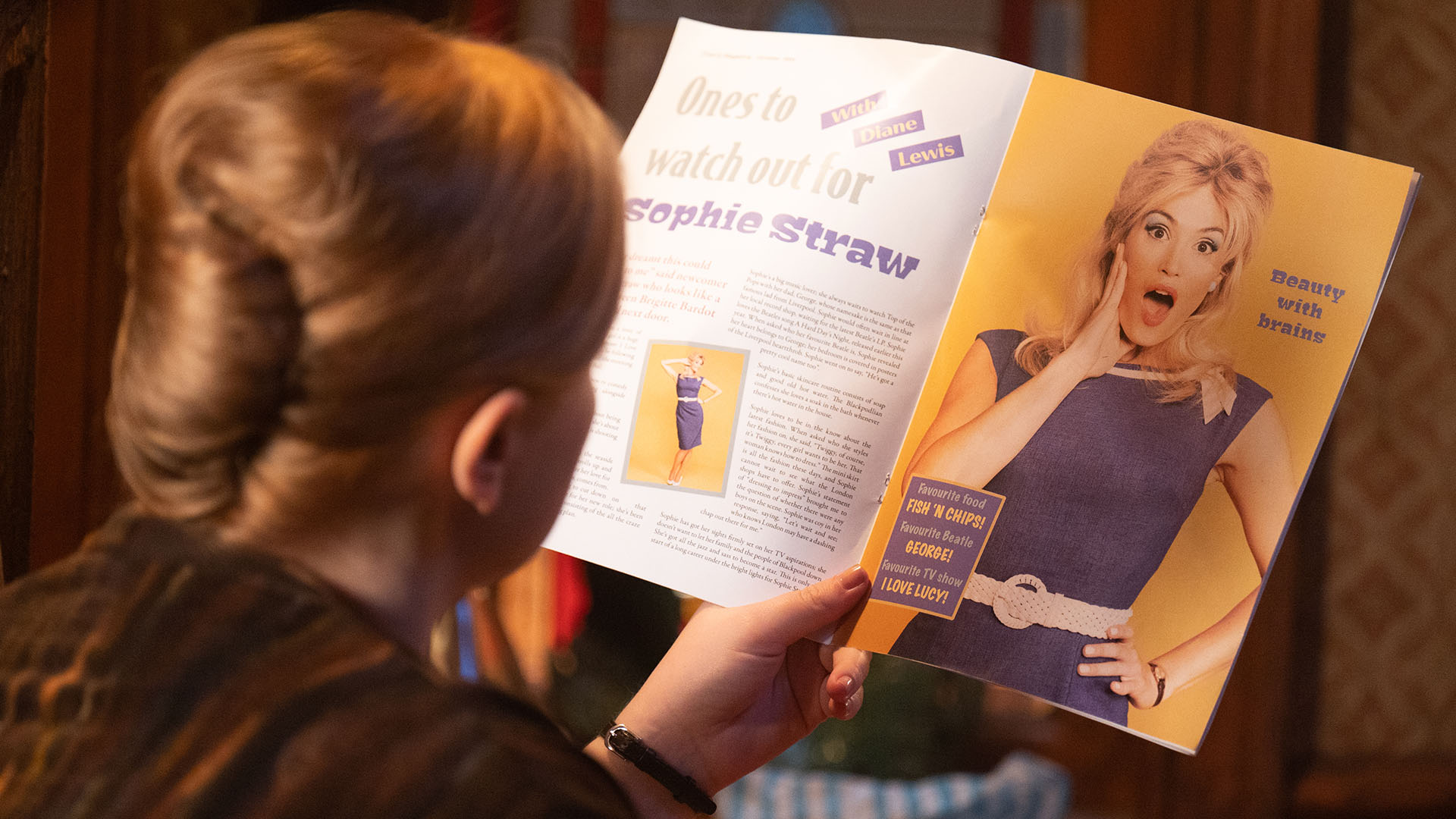
Beloved author Nick Hornby’s novel comes to the screen, with Gemma Arterton starring in Funny Woman. It’s an upbeat homage to 1960s British screwball television and the rise of women entertainers, discovers Rachel Ashby.
Funny Woman, the new television adaptation of Nick Hornby’s 2014 novel Funny Girl, stars Gemma Arterton as plucky Blackpool beauty queen Barbara, who runs away to London to pursue her dream of becoming a comedy actress.
Arterton’s Barbara is a true symbol of the swinging sixties, with an optimistic outlook and a can-do attitude. Not content to sign up for a future as the pretty wife of the town’s best butcher, she ditches her fiancé, and her job in her father’s sweet factory, to head toward the bright lights of the capital city. Barbara shares a love of comedy radio plays with her dear old dad, so it’s a dream come true when she lands a role on a new sitcom written by her favourite comedy troupe.
As a series, Funny Woman is an upbeat homage to 1960s British screwball television and the rise of women entertainers. After winning the Miss Blackpool competition, her family hopes she’s set to be the next Sabrina: the famous 1950s glamour model who also hailed from the seaside town. But Barbara is determined to exceed everyone’s expectations. She has her sights set on emulating the career of her own personal heroine: the glamorous and goofy queen of television comedy, Lucille Ball.
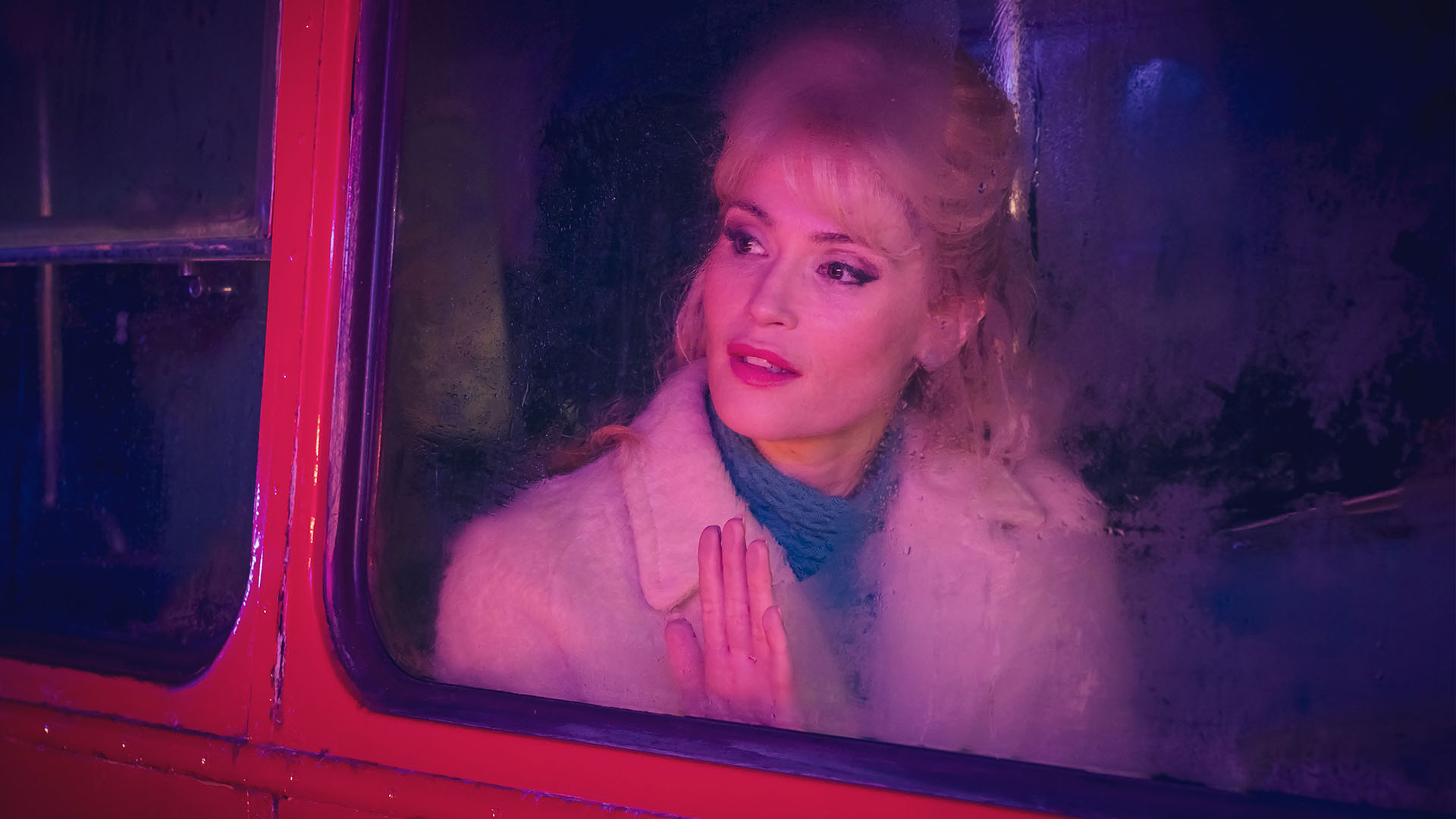
It’s not a straight line to stardom for Barbara as she faces the dual challenge of being working class and a woman. In auditions, she’s either rejected for being ‘too sexy’ or ‘too Northern’ to play most of the characters she’s reading. She resorts to some serious determination, a little bit of lying, and a lot of charm to get casting agents to take her comedy prowess seriously. In this way, Barbara feels like a fitting role for Arterton who, as both an actor and a producer on the show, is passionate about smashing a few stereotypes.
Across her career, Arterton has often been cast as the bombshell (think Strawberry Fields in Quantum of Solace or her femme fatale Gretel in the truly bananas Hansel and Gretel: Witch Hunters). When she’s been in comedy roles it’s often her good looks that end up the butt of the joke (Tamara Drewe, St. Trinians or The Boat That Rocked all spring to mind). With Barbara, Arterton finally has an opportunity to play comedy with agency, and she seems to relish the chance to lean into the clowning required of the character.
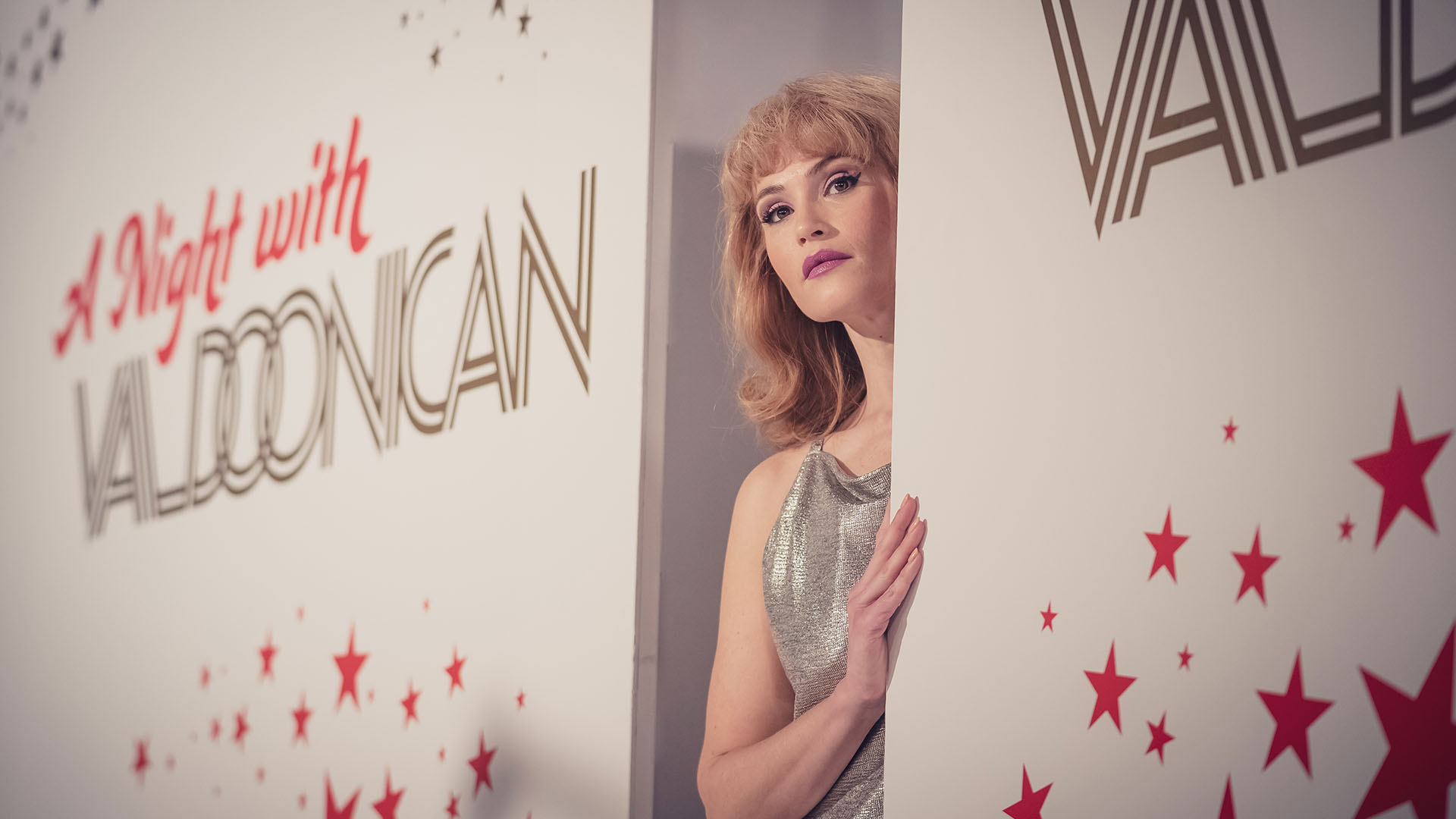
Barbara isn’t the only character in Funny Woman who represents the changing face of British media in the 60s. Arsher Ali plays Dennis, a long-suffering Pakistani-British producer, who wearily fends off racial microaggressions. Meanwhile, Mathew Beard and Leo Bill are the not-so-secretly gay scriptwriters trying to subvert the ‘happy couple’ tropes of British tea-time telly. Rounding out the core cast of comedy players is Clive, played by Tom Bateman, the handsome star of the troupe’s performances who is not so sure about a woman coming in to steal his thunder.
Funny Woman is at its best when these personalities are all at play with one another, and it’s perhaps unsurprising that director Morwenna Banks is no stranger to ensemble comedy herself, with credits on shows like Absolutely, Saxondale and Reeves and Mortimer’s Catterick under her belt.
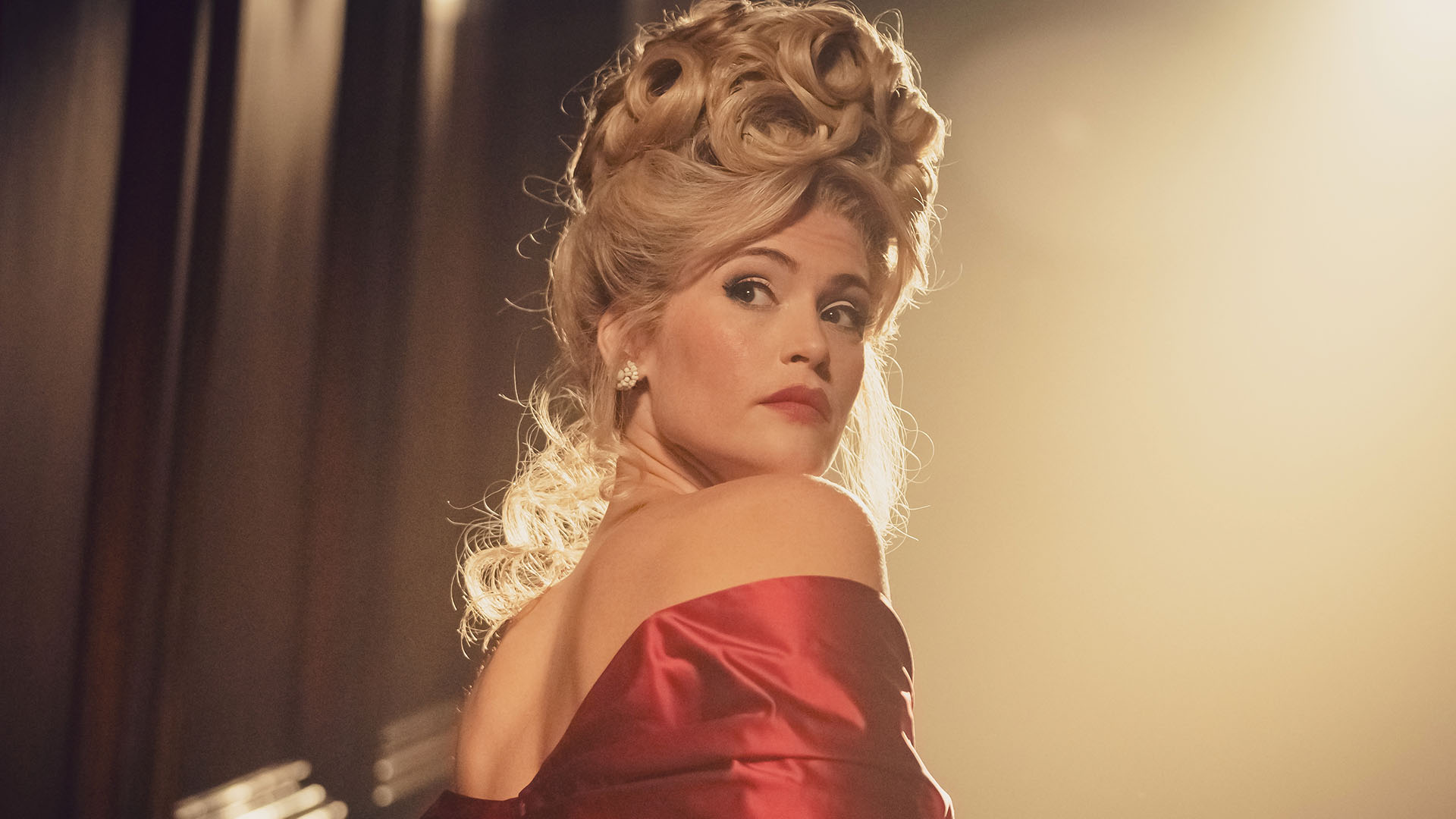
While socio-political undercurrents weave throughout Funny Woman, it’s also not afraid to have fun. The soundtrack is packed with needle-drop moments from the likes of Petula Clark through to the Turtles, reflecting the optimism of the decade and Barbara’s wide-eyed excitement at the world she’s fallen into. The costuming is sumptuous and enviable, particularly as Barbara slowly comes into her own confidence as a performer.
London itself is given a suitable dose of glitz and glamour, with every party scene wreathed in cigarette smoke and the department stores laden with millinery finery. Scenes in the broadcasting studios will interest anyone who likes to know how the sausage of television is made, and add to the meta-ness of watching a tv show about a tv show play out.
Following Nick Hornby’s source material the show is a thoroughly British underdog story: a young woman with lofty goals chasing an unlikely dream and proving naysayers wrong.
